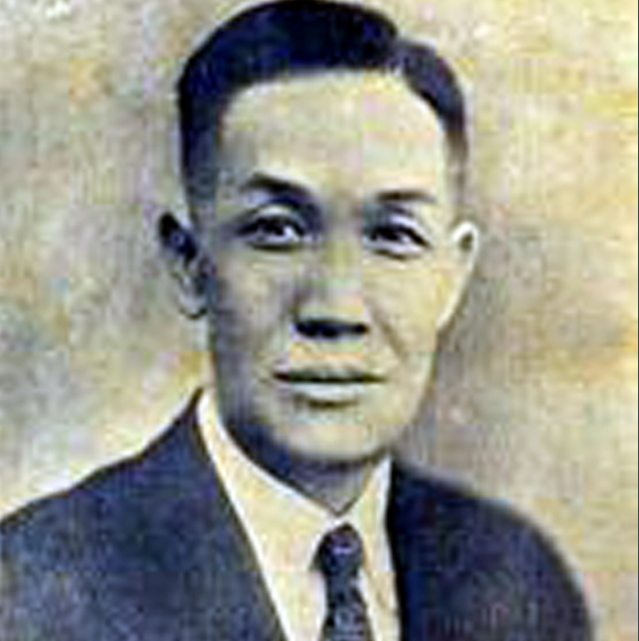Hill Crane

Qiu He couple (1880-1942), Guangdong music performer, composer, educator, one of the founders of Guangdong music. Good at Yangqin, Erxian, Suona, Gaohu, etc.
In 1880, Qiu He couple was born in Nalu Village, Natai Township, Taishan County. At that time, it was the end of the Qing Dynasty, feudal superstition was prevalent, and there were many kinds of fasting festivals in the local area, and these became the earliest enlightenment for Qiu He's wife to learn music later. Qiu He's wife has been fond of music since childhood. Because of her talent and intelligence, she has a good memory. When she was a few years old, she could memorize and imitate the songs of "Nan Wu" (monk) and "Shigu" (Nun) during the fasting festival after listening to them only two or three times. , can play and sing, and was praised as "prodigy" by the villagers. After a while, I started to be able to accompany the fasting festivals of "Nanwu" and "Shigu".
In 1889, Nalu Village hired a master of "Eight-tone", Hu Degao, from nearby Lejia Village, Guangdian Township, to organize the "Eight-tone Class" (gong and drum cabinet). From then on, he often went to the village's ancestral hall to listen to "Eight Tones". Soon, Qiu He couple was accepted as a disciple by Hood Gao and taught him musical instruments. At the age of 13, Qiu Hechu was absorbed by the octave class and became the youngest suona player. In the meantime, he also worked hard to learn dulcimer and other instruments, and practiced the systematic method of playing dulcimer Zuozhu. Within a few years, under the guidance of Hu Degao, Qiu He couple had learned a lot about various musical instruments, tunes and folk music theory, and became an eye-catching young suona player in the folk band at that time.
In 1894, the 15-year-old Qiu He couple traveled to the South China Sea to make a living. At the age of 20, he returned to Hong Kong to settle down. He first worked as an employee in a private telephone company, and later he ran a small shop selling stationery and musical instruments. Apprentices taught arts, founded a private music school, and gradually became the main occupation for a living. In the teaching process, he introduced the performance of various musical instruments, introduction to playing, fingering, etc. by using diagrams, and paid attention to the comparison of Chinese (Gongchi notation) and Western (numbered notation) scores. This teaching method was welcomed by the students. While engaged in teaching Guangdong folk music, Qiu Hechu also went deep into the folk, visiting and collecting ancient tunes, folk music and Cantonese operas that were popular in Guangdong in the 1920s and 1920s. , "major", "minor", etc., and has edited and published a variety of books and periodicals such as "Music Reading of String Songs", "Essence of Qin Studies", "New Voices of Chinese Music", "New Compilations of Qin Studies". After these collections came out, they were exported to the United States and Southeast Asia and other countries and regions, and actively promoted the dissemination of Cantonese music and Cantonese opera. In addition to teaching and research, Qiu Hexiu also devoted himself to the creation of Guangdong music [1] .
In 1930, Qiu Hexiu, Lv Wencheng and Yang Lizhen performed at Taiping Theater in Taicheng. Afterwards, Qiu Hexiu and his entourage also performed at the Duanfen Datong Theater.
In 1932, due to the death of his father, Qiu He and his wife returned to their hometown for the funeral and stayed in the hometown for a long time. During the period, because he could not resist the hard demands of the villagers to invite him to perform, he performed a music program for more than an hour in his hometown Datong Xinsheng Tea House and Duanfen Qianjihou Primary School (now Natai School). He also used the violin and gaohu to play "Birds Throwing in the Forest" and other pieces. He skillfully used tactful echoes and fast detour glissandos up and down to imitate the chirping of various birds, which is vivid and beautiful.
In 1934, Qiu He couple made a special trip to New York and other places to tour. In the performance, he played with dulcimer, suona, sanxian and other instruments.
In 1941, during the Japanese invasion of China, due to the turmoil in the current situation and the hard life, coupled with the death of her love child by the Japanese plane, Qiu He's wife was deeply affected, her hearing deteriorated, and she became depressed. She died of illness in Hong Kong in 1942. died at the age of 62.
Similar artist
Involving musical instruments
Involved portfolio
Involved news
Popular artists
- 01 Zhang Xiuyan
- 02 King Hammer
- 03 Chen Tao
- 04 Wang Yumeng (Ink Peanut Butter)
- 05 Deng Jiandong
 渝公网安备 50010702504639号
渝公网安备 50010702504639号